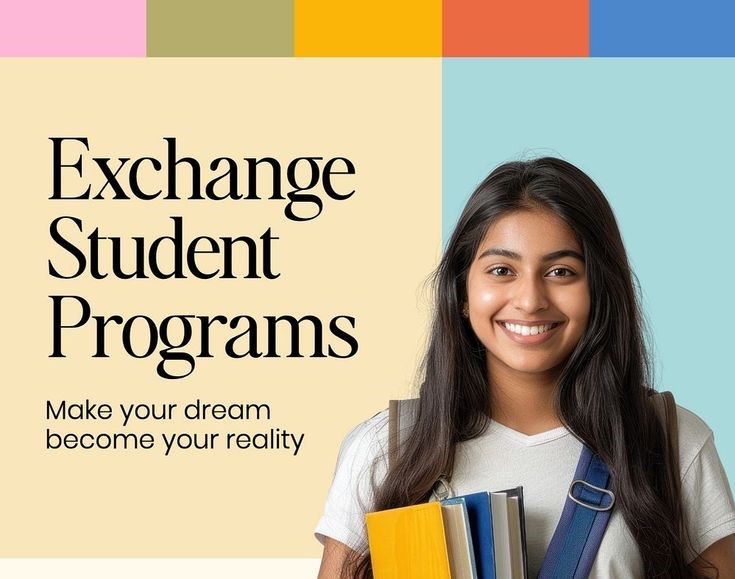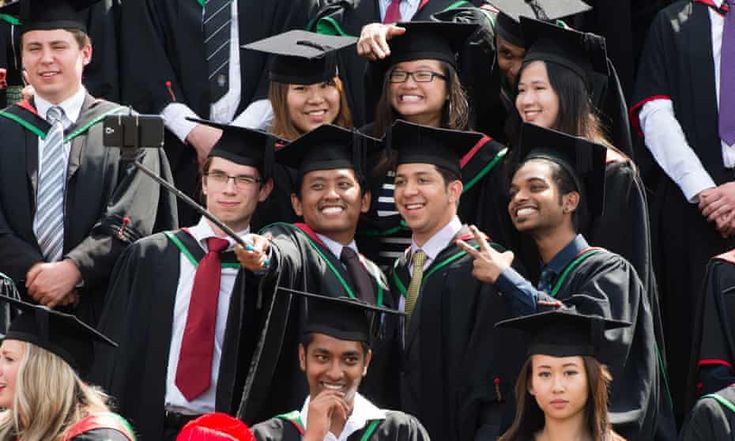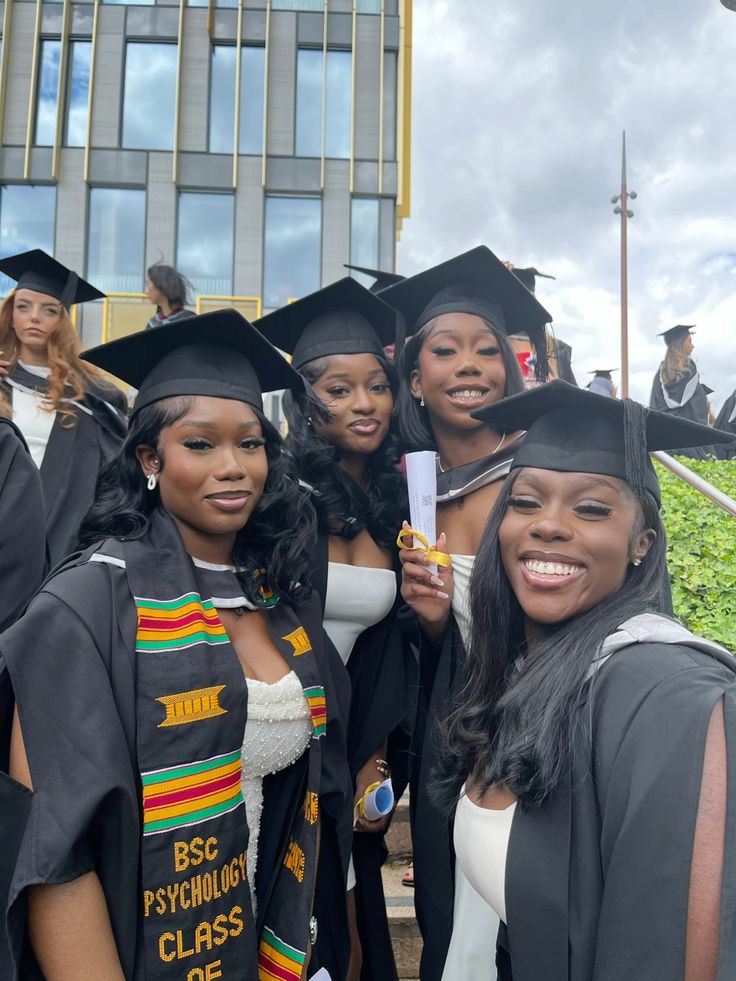In today’s globalized world, exchange programs provide students with unparalleled opportunities to gain international exposure, enhance academic skills, and broaden cultural understanding. Fully funded exchange programs are especially appealing because they eliminate the financial barriers that often accompany such opportunities. In this guide, we will explore how to apply for these programs, key tips for success, and essential resources to help you maximize your chances of acceptance.
Understanding Fully Funded Exchange Programs
Fully funded exchange programs are transformative opportunities for students to study or intern abroad without the financial burden that often accompanies such experiences. These programs are designed to promote cross-cultural understanding, academic growth, and international collaboration. A fully funded exchange program typically covers key expenses such as tuition fees, travel costs, accommodation, and, in many cases, a living stipend. By removing financial barriers, these programs allow students to focus on their academic, cultural, and personal development.
Governments, universities, and international organizations sponsor these initiatives to cultivate global leaders and foster international cooperation. Whether you aim to pursue higher education, participate in research projects, or engage in cultural exchanges, fully funded exchange programs open doors to experiences that can shape your career and broaden your worldview.
Detailed Benefits of Fully Funded Exchange Programs
1. Comprehensive Financial Support
One of the most appealing aspects of fully funded exchange programs is their financial coverage. They typically handle:
- Tuition Fees: Participants can attend top-tier institutions without worrying about the cost of education.
- Travel Costs: Round-trip airfare and sometimes additional transportation costs are included.
- Accommodation: Many programs provide housing, either on-campus or in approved facilities.
- Living Expenses: Monthly stipends or allowances are often offered to cover food, personal needs, and other daily costs. This financial relief enables students to immerse themselves in the experience without the distraction of monetary concerns.
2. Global Exposure
Fully funded exchange programs allow students to experience life in a different country, exposing them to diverse cultures, languages, and traditions. This immersion fosters:
- Cultural Sensitivity: Participants learn to navigate and appreciate cultural differences, enhancing their interpersonal skills.
- Language Proficiency: Living in a foreign country provides an excellent opportunity to learn or improve proficiency in another language, a valuable skill in the global job market.
For example, students interested in studying in Europe can explore opportunities like the Erasmus+ Program, which supports academic and cultural exchange across European countries.
3. Networking Opportunities
These programs bring together students, academics, and professionals from various countries, creating a vibrant network of peers and mentors. Participants can:
- Build long-lasting friendships.
- Form professional connections that may lead to future job opportunities or collaborations.
- Interact with alumni networks that often provide career guidance and support.
Programs like the Fulbright Program in the USA or the Chevening Scholarships in the UK are renowned for their extensive alumni networks that include global leaders and industry pioneers.
4. Academic and Professional Growth
Participating in a fully funded exchange program can significantly boost your academic and career trajectory. Benefits include:
- Access to world-class educational resources, such as libraries, labs, and renowned faculty.
- Opportunities to engage in cutting-edge research and innovative projects.
- Exposure to different teaching methods, enhancing critical thinking and problem-solving skills.
- A globally recognized credential that adds value to your resume or CV.
Students looking to advance their careers should also consider programs that support professional internships or co-op placements.
5. Enhanced Personal Development
Exchange programs are not just academic; they are also personal journeys of growth. Students develop:
- Independence and adaptability by navigating life in a foreign country.
- Confidence in their abilities to overcome challenges and seize opportunities.
- A broadened perspective on global issues, preparing them to be active and informed global citizens.
Scholarship Opportunities
- For students considering studying in the UK, Best Fully Funded Scholarships in the UK for International Students offer incredible options for pursuing higher education at prestigious universities.
- In the USA, the How to Apply for a Fully Funded Scholarship in the USA guide provides step-by-step assistance for securing opportunities such as the Fulbright Scholarship.
Work Opportunities with Visa Sponsorship
- While studying or post-graduation, students may explore employment options through Top 5 Websites to Find Visa Sponsorship Jobs Anywhere in the World.
- Europe and Canada are particularly attractive for international students seeking job opportunities.
Studying in Canada
Canada remains a top destination for international students due to its excellent education system and immigration pathways. Programs like Study in Canada: Fully Funded Visa Sponsorship Opportunities for Students combine academic opportunities with immigration advantages.
Key Considerations for Applicants
- Program Fit: Research thoroughly to find a program that aligns with your academic and career goals. Tools like Top 15 Fully Funded Scholarships for International Students can help narrow your options.
- Eligibility Criteria: Understand the specific requirements of each program. These might include academic qualifications, language proficiency, or relevant experience.
- Early Preparation: Begin the application process well in advance to gather necessary documents, craft a strong personal statement, and secure recommendation letters.
- Financial Planning: Even fully funded programs may have incidental costs. Plan for these by exploring additional funding sources if needed.
How Fully Funded Exchange Programs Support Long-Term Goals
Participating in an exchange program is often the first step toward broader international opportunities. These programs can lead to:
- Permanent Residency: Countries like Canada offer pathways for students to transition from study visas to permanent residency through programs like the Post-Graduation Work Permit (PGWP) or by marrying a citizen, as outlined in Permanent Residency in Canada Through Marriage.
- Employment Opportunities: Many alumni transition to full-time roles in their host country, leveraging their international education and networks.
- Advanced Education: Students often pursue higher degrees or specialized training, equipped with the knowledge and experience gained during their exchange.
Fully funded exchange programs provide a unique combination of academic, cultural, and personal enrichment while removing financial barriers. By investing time in researching and preparing for these programs, students can unlock opportunities that will shape their futures. From scholarships in top destinations like the UK and USA to visa sponsorship jobs and immigration pathways, these programs offer a comprehensive framework for global success. Begin your journey today, and take the first step toward becoming a global citizen.
How to Apply for Fully Funded Exchange Programs
1. Research and Identify Suitable Programs
- Start by exploring options that align with your academic goals. Websites like Scholars4Dev, Chegg Internships, and government portals provide extensive listings of exchange opportunities.
- If you’re an international student looking for scholarships in countries like the UK, the Best Fully Funded Scholarships in the UK for International Students offer exceptional opportunities to study at top-tier institutions such as Oxford or Cambridge.
2. Check Eligibility Requirements
- Most programs require candidates to demonstrate academic excellence, extracurricular involvement, and proficiency in the host country’s language.
- For example, the Top 15 Fully Funded Scholarships for International Students often target high-achieving students with leadership potential.
3. Prepare Your Application Documents
- Key documents typically include:
- A well-crafted personal statement
- Recommendation letters
- Academic transcripts
- Proof of language proficiency
- Learning how to Apply for a Scholarship That Covers Both Tuition and Visa Costs is crucial for ensuring a smooth application process.
4. Submit Your Application
- Follow the instructions carefully and submit your application before the deadline. Ensure all documents are complete and formatted according to the requirements.
Popular Fully Funded Exchange Programs
Here are some globally recognized fully funded exchange programs:
- Fulbright Program (USA):
- Covers tuition, airfare, living stipend, and health insurance for students seeking master’s or PhD programs in the USA.
- Learn more about How to Apply for a Fully Funded Scholarship in the USA to get started.
- Erasmus+ (Europe):
- Focuses on higher education and provides scholarships for study or internships across European countries.
- For skilled workers considering Europe, the Guide to Visa Sponsorship Jobs in Europe for Skilled Workers may also be helpful.
- Chevening Scholarships (UK):
- Funded by the UK government, this program supports one-year master’s degrees for international students.
- For more opportunities in the UK, explore the Best Fully Funded Scholarships in the UK for International Students.
- Canada Graduate Scholarships:
- Offers funding for graduate students in Canadian universities. Research Study in Canada: Fully Funded Visa Sponsorship Opportunities for Students for details.
Tips to Strengthen Your Application
- Tailor Your Personal Statement:
- Highlight your unique qualities, achievements, and how the program aligns with your goals.
- Secure Strong Recommendations:
- Approach professors or employers who know you well and can provide detailed endorsements.
- Improve Your Language Skills:
- Many programs require proficiency in English or the host country’s language. Take TOEFL, IELTS, or other relevant tests.
- Showcase Extracurricular Activities:
- Emphasize your involvement in volunteer work, internships, or other projects demonstrating leadership and commitment.
Additional Resources and Opportunities
Visa Sponsorship Jobs and Their Relevance
Fully funded exchange programs typically cover the costs associated with obtaining a visa. However, understanding visa sponsorship jobs can provide additional advantages for students and professionals aiming for long-term opportunities abroad. Visa sponsorship jobs are roles offered by employers who take responsibility for securing a work visa for their employees, enabling them to live and work legally in a foreign country.
For students, especially those considering employment after an exchange program, exploring visa sponsorship jobs can open doors to financial independence, career growth, and even permanent residency. Below are key resources and tips to help identify and leverage visa sponsorship opportunities:
- Top 5 Websites to Find Visa Sponsorship Jobs Anywhere in the World: Websites like LinkedIn, Indeed, and Glassdoor offer job filters that allow users to search specifically for visa sponsorship roles. These platforms provide curated lists of employers willing to sponsor international workers.
- Visa Sponsorship Jobs in Canada: Canada is a highly sought-after destination for students and professionals due to its inclusive immigration policies and robust job market. Some of the Top 10 Visa Sponsorship Jobs in Canada You Can Apply for Today include roles in healthcare, technology, and engineering. Students completing their exchange programs in Canada can transition to work visas through opportunities such as the Post-Graduation Work Permit (PGWP) program.
-
How to Secure a Visa Sponsorship Job in Canada:
- Tailor Your Resume: Highlight your international education and relevant experience.
- Target High-Demand Sectors: Fields such as IT, healthcare, and skilled trades are in constant demand.
- Network Effectively: Leverage platforms like LinkedIn and alumni networks to connect with potential employers.
- Guide to Visa Sponsorship Jobs in Europe for Skilled Workers: Europe is another attractive destination for international students. Countries like Germany and the Netherlands actively seek skilled workers in fields such as engineering, technology, and healthcare. Understanding the Step-by-Step Guide to Securing a Visa Sponsorship Job in Germany can be a game-changer for students planning to extend their stay.
Permanent Residency and Long-Term Opportunities
For students who wish to transition from temporary visas to permanent residency, exchange programs can serve as valuable stepping stones. Many countries offer clear pathways to permanent residency for individuals who have studied or worked within their borders. Here’s how exchange programs can contribute to long-term settlement goals:
- Pathways in Canada: Canada offers multiple routes to permanent residency for international students, such as the Express Entry Program and the Provincial Nominee Program (PNP). Students who have participated in a fully funded exchange program can often count their academic experience toward residency eligibility.
- Permanent Residency Through Marriage: Another route is through marriage to a Canadian citizen or permanent resident, as outlined in Permanent Residency in Canada Through Marriage. While this is not a direct strategy for everyone, it highlights Canada’s accommodating policies for family reunification.
- Leveraging Work Experience: Many countries prioritize candidates with local work experience. Exchange students who secure jobs in high-demand sectors, especially through visa sponsorship opportunities, can improve their residency prospects.
- Building a Competitive Profile:
- Language Proficiency: Achieving high scores in language tests such as IELTS or TOEFL can boost your application for permanent residency.
- Cultural Integration: Active participation in local community events or volunteering can demonstrate your commitment to the host country.
Understanding visa sponsorship jobs and leveraging the opportunities provided by fully funded exchange programs can significantly enhance your chances of achieving long-term goals abroad.
Exchange programs are not just academic opportunities; they can be pivotal in setting the foundation for a successful and fulfilling life in a new country. By aligning your education, career goals, and immigration strategies, you can maximize the value of these programs while opening doors to a brighter, more globally connected future.
Common Challenges and How to Overcome Them in Fully Funded Exchange Programs
Participating in a fully funded exchange program can be a transformative experience, but it’s not without its challenges. From navigating the competitive selection process to overcoming language barriers and cultural adjustment, students often face hurdles along the way. Below is a discussion of these challenges, along with practical solutions to help prospective applicants succeed.
1. Competitive Selection Process
One of the most significant challenges of fully funded exchange programs is the intense competition. With limited spots and thousands of applicants worldwide, standing out can feel daunting.
Challenges:
- High academic and extracurricular standards.
- Strict application deadlines and requirements.
- A need to demonstrate leadership, global awareness, and unique perspectives.
Solutions:
- Start Early: Begin researching programs and their requirements well in advance. This allows ample time to gather documents, write compelling essays, and prepare for interviews.
- Seek Mentorship: Connect with alumni or professionals who have successfully participated in exchange programs. Their insights can guide you in crafting a standout application.
- Highlight Your Unique Qualities: Emphasize experiences or skills that differentiate you from other applicants. For instance, share stories of leadership, community service, or overcoming adversity.
- Polish Your Application: Invest time in proofreading your essays and resume. A clear, error-free application reflects professionalism and attention to detail.
By following these steps, you can significantly enhance your chances of securing a spot in prestigious programs like the Fulbright Program or Chevening Scholarships.
2. Language Barriers
Language proficiency is often a requirement for exchange programs, especially those in non-English-speaking countries. Even when the host country uses English, accents, idiomatic expressions, and cultural nuances can be challenging.
Challenges:
- Difficulty understanding lectures or engaging in academic discussions.
- Communication barriers in daily interactions with locals.
- Limited confidence in public speaking or group activities.
Solutions:
- Take Language Courses: Enroll in online or in-person language classes tailored to the host country’s language. Platforms like Duolingo, Rosetta Stone, or Preply offer accessible options.
- Engage in Immersive Learning: Practice speaking, listening, reading, and writing in the target language through movies, podcasts, and books.
- Utilize Language Apps and Tools: Tools like Google Translate and language dictionaries can be lifesavers for quick translations and phrase learning.
- Connect with Native Speakers: Join language exchange groups or practice with tutors to gain conversational fluency.
Improving language skills not only boosts confidence but also enriches your experience by enabling deeper connections with locals and peers.
3. Cultural Adjustment
Adapting to a new culture can be both exciting and overwhelming. From understanding social norms to navigating unfamiliar systems, cultural adjustment requires patience and resilience.
Challenges:
- Homesickness and feelings of isolation.
- Difficulty understanding and adapting to local customs.
- Struggles with food, weather, and lifestyle differences.
Solutions:
- Research the Host Country: Before departure, study the culture, traditions, and etiquette of your destination. Websites like CultureGrams and travel blogs offer detailed insights.
- Engage with Alumni and Current Participants: Alumni networks and program forums can provide practical tips on what to expect and how to prepare.
- Participate Actively: Immerse yourself in local events, festivals, and activities. Engaging with the community helps ease the transition and creates meaningful connections.
- Develop a Support System: Stay connected with friends and family back home while building relationships with fellow participants and locals.
By approaching cultural adjustment as a learning opportunity, students can embrace the diversity and broaden their global perspectives.
Additional Tips for Navigating Challenges
-
Mental and Emotional Preparedness:
- Understand that challenges are a natural part of the journey.
- Practice mindfulness and stress management techniques to stay grounded during tough times.
-
Seek Institutional Support:
- Many exchange programs offer resources like counseling, orientation sessions, and student advisors. Take full advantage of these services.
-
Stay Flexible and Open-Minded:
- Be willing to adapt and learn. Flexibility is key to thriving in a new environment.
While fully funded exchange programs come with challenges such as a competitive selection process, language barriers, and cultural adjustment, these obstacles can be overcome with preparation and determination. By starting early, seeking mentorship, and leveraging resources like language courses and alumni networks, students can turn potential setbacks into growth opportunities. Embrace these challenges as stepping stones to a rewarding and transformative global experience.
Conclusion
Fully funded exchange programs are gateways to academic excellence and global citizenship. By carefully researching programs, preparing a compelling application, and utilizing resources like visa sponsorship opportunities, you can maximize your chances of success. These programs not only enrich your academic and cultural experience but also pave the way for long-term personal and professional growth.
Begin your journey today by exploring options tailored to your aspirations, and remember, persistence and preparation are key to unlocking these life-changing opportunities.




